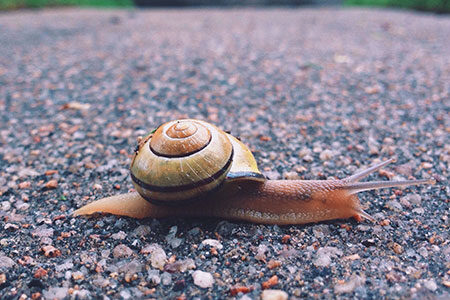
5 Most Common Pests in Gardens and How to Deal with them
Pest infestation is a recurring struggle for gardeners. They spend weeks watering and fertilizing beautiful plants, only to wind up with stubborn pests and plant diseases. Read MoreMaintaining a lush green garden means you must eradicate all dangers coming your way. Since the most common threat to your garden plants is pest infestation, it’s in your best interest to learn its reasons and solutions.
Therefore, we have listed the most common pests and some effective pest control tips you can follow to overcome this nuisance. Read on to know more! Be prepared before Garden season starts and don’t be taken by surprise!
Common Pests in Gardens
- Aphids
Commonly called greenfly and blackfly, aphids are found in most gardens. These pear-shaped pests move in groups and can significantly halt a plant’s growth, leading to a mushy appearance. These pests infest soft plants and new shoots where they leave a sticky substance behind as a damage sign.
- Snails and Slugs
Snails and slugs leave obvious damage signs on your plants. They nibble on leaf edges and make them look ragged. These two pests are pretty resilient and discrete in their actions; eradicating them takes extra work.
- Boxtree Caterpillars
These long and vibrant-looking pests damage a plant’s foliage, slowly halting its growth. Effective pest control requires you to control caterpillars because otherwise, they’ll eat the entire plant over time.
- Whitefly
Whiteflies attack edible and soft garden plants. These moth-like flies suck sap from a plant, resulting in reduced growth and compromised plant health. If you suspect the presence of whitefly in your garden, look under the leaves to estimate their impact and plan pest control accordingly.
- Vine Weevil
Vine weevil is one of the most destructive pests. This beetle-shaped insect eats around leaves, leaving them with a distorted look and stunted growth. One needs thorough pest control to get rid of this one.
How to deal with Pests in your Garden?
Once you spot pest damage in your garden, it calls for a solution. There are a few steps you can follow to overcome this issue. Here’s what you can do to reduce pest infestation in your garden:
- Clean your garden soil off plant debris, algae, mulch, and dead organic matter before seeding new plants.
- Use pest-resistant seeds to prolong your garden’s life.
- Follow a watering cycle for your garden to keep plant roots healthy and clean.
- Rotate your plants and crops according to the season to keep pests at bay.
Summing Up
Pest control is one of your primary duties as a gardener. When those insects and pests start to inhabit your plants, they can quickly take over your months of hard work. Therefore, it’s smart to learn about the most destructive pests and plan their treatment accordingly.
